Top Email Marketing Tools for Shopify Store Success
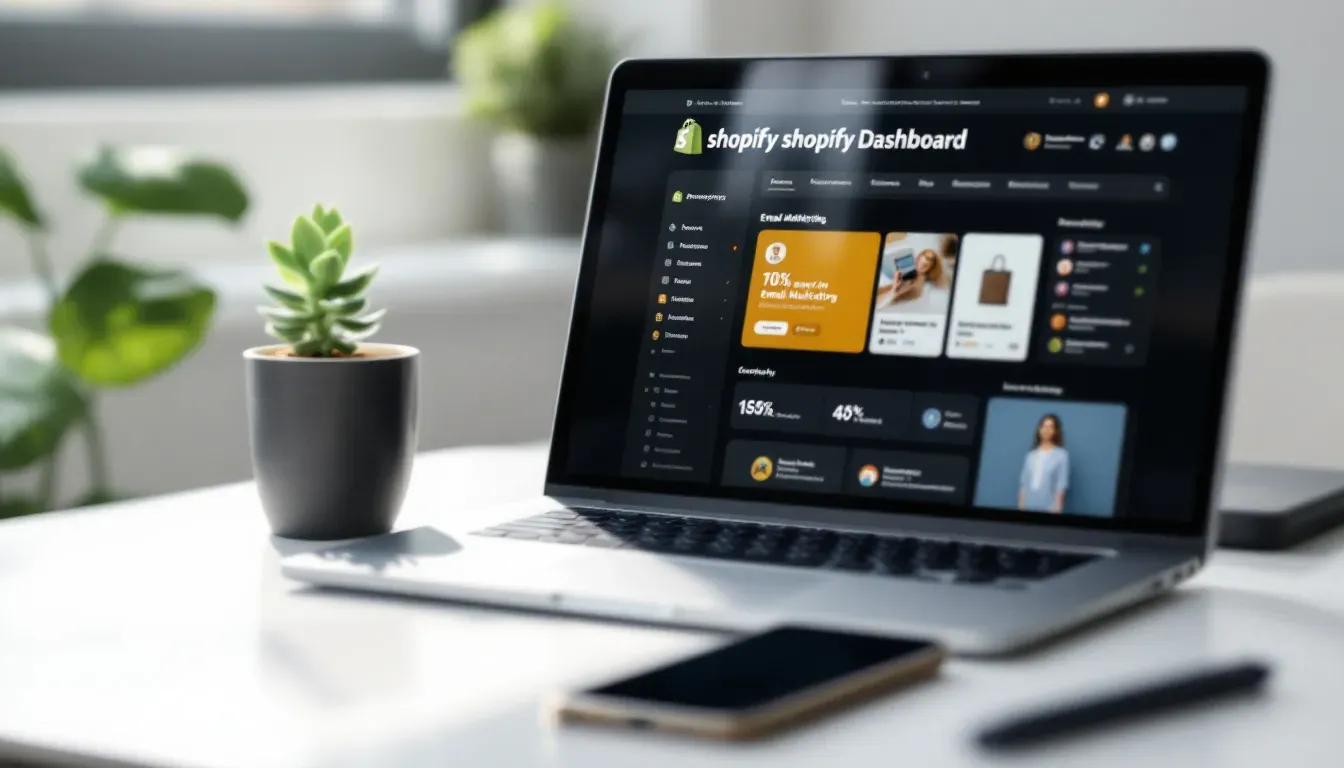
Email marketing is a game-changer for Shopify store owners looking to boost sales and customer engagement. At Drop Cowboy, we’ve seen firsthand how the right email marketing tools can transform a struggling online store into a thriving e-commerce powerhouse.
In this post, we’ll explore the best email marketing Shopify tools that can help you achieve your business goals. From powerful automation features to advanced segmentation capabilities, these tools offer everything you need to create compelling email campaigns that drive results.
What Makes a Great Email Marketing Tool for Shopify?
Seamless Shopify Integration
The best email marketing tools for Shopify offer effortless integration. These tools can sync with your store’s data, including customer information, purchase history, and product details. Klaviyo, for example, provides a one-click integration process that immediately starts pulling in your Shopify data. This seamless connection enables you to create highly targeted campaigns based on real-time customer behavior.
Powerful Automation Capabilities
Automation scales your email marketing efforts without increasing your workload. Top tools offer pre-built workflows for common scenarios like welcome series, abandoned cart recovery, and post-purchase follow-ups. Omnisend provides over 20 pre-built automation workflows specifically designed for e-commerce. These automated campaigns can significantly boost your revenue (Omnisend reports that their users see an average of 29% of email marketing revenue coming from automated messages).
Advanced Segmentation and Personalization
The ability to segment your audience and personalize your messages drives engagement and conversions. Top-tier email marketing tools allow you to create segments based on a wide range of criteria, from purchase history to browsing behavior. Drip takes this a step further with its Ecommerce Revenue Attribution feature, which helps you understand which emails drive the most sales. This level of insight allows you to refine your segmentation strategy and create hyper-personalized campaigns that resonate with your audience.
Robust Analytics and Reporting
To optimize your email marketing efforts, you need access to comprehensive analytics and reporting. Look for tools that provide detailed insights into key metrics like open rates, click-through rates, and conversion rates. Mailchimp offers an e-commerce dashboard that shows you how much revenue each email campaign has generated. This kind of data proves invaluable for understanding what works and what needs improvement in your email marketing strategy.
User-Friendly Interface
A great email marketing tool should have an intuitive interface that makes it easy to create, send, and analyze your campaigns. Tools like Mailchimp and Klaviyo offer drag-and-drop email builders that allow you to create professional-looking emails without any coding knowledge. This user-friendliness saves you time and allows you to focus on crafting compelling content rather than wrestling with complex software.
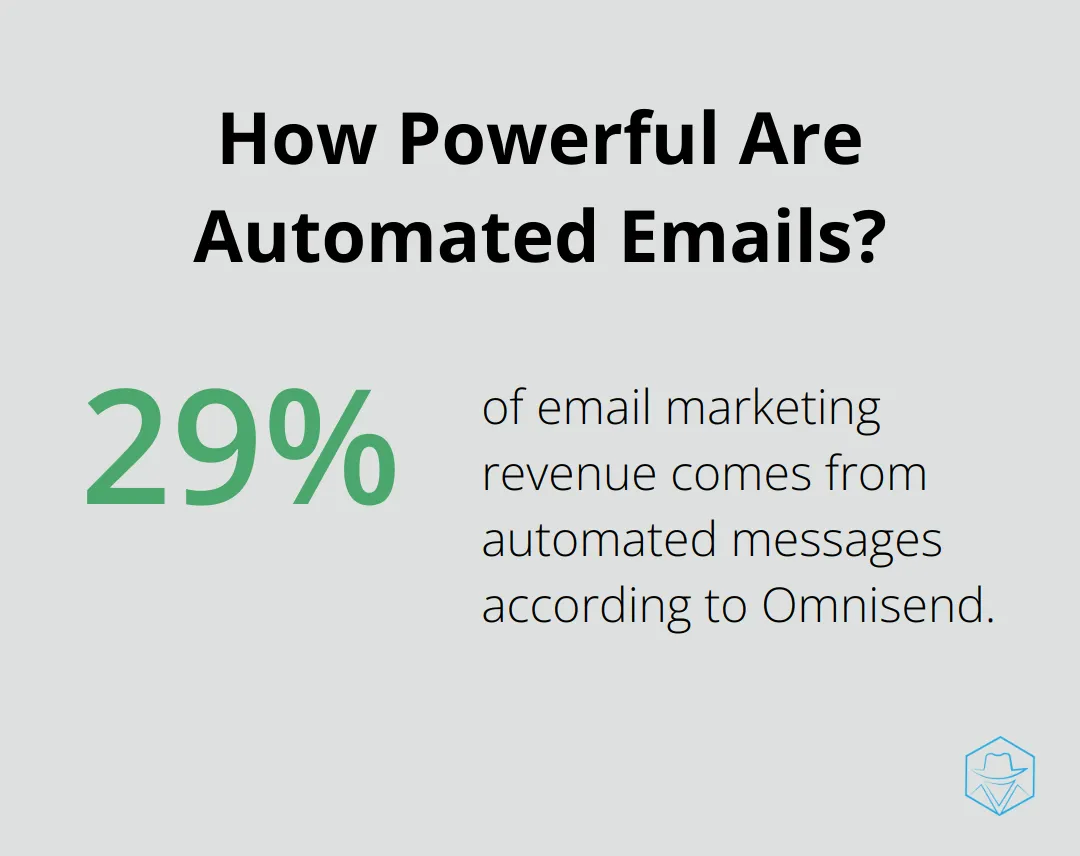
While these features stand out as essential, you should also consider factors like customer support and pricing when making your decision. (And if you’re looking to complement your email marketing efforts with other powerful communication tools, Drop Cowboy’s ringless voicemail and SMS solutions can help you reach customers through multiple channels, further amplifying the impact of your marketing campaigns.)
Now that we’ve covered what makes a great email marketing tool for Shopify, let’s take a closer look at some of the top options available in the market today.
Best Email Marketing Tools for Shopify
Email marketing tools can make or break your Shopify store’s success. After rigorous testing and analysis, we’ve identified the top performers that consistently deliver results for e-commerce businesses.
Klaviyo: The E-commerce Powerhouse
Klaviyo stands out as the premier email marketing solution for serious Shopify store owners. Its e-commerce focus permeates every feature, from deep Shopify integration to powerful segmentation capabilities.
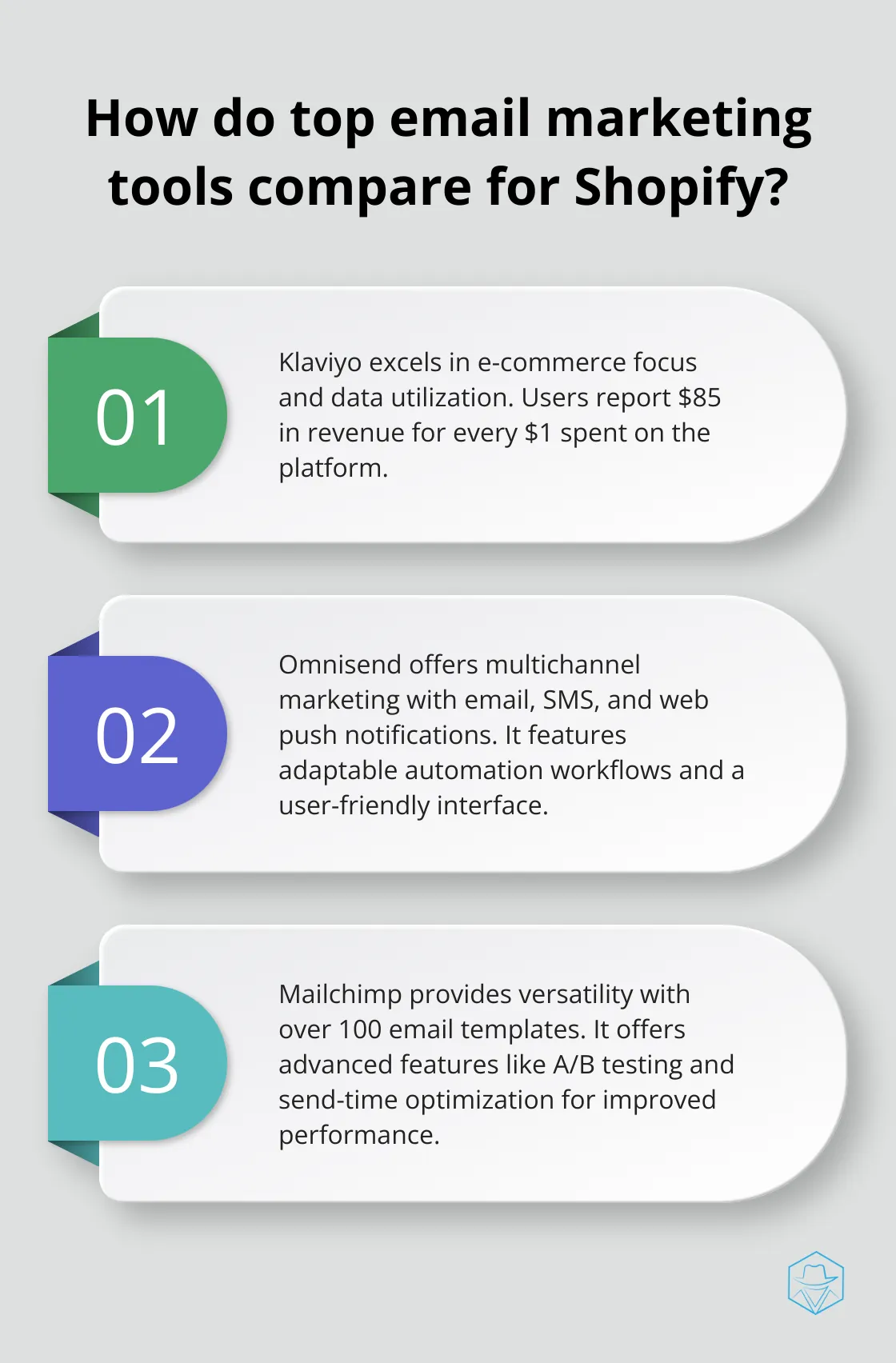
Klaviyo excels at leveraging your store’s data to create highly targeted campaigns. You can automatically trigger email series based on customer browsing history, abandoned cart items, or past purchases. This personalization yields impressive results (Klaviyo users report an average of $85 in revenue for every $1 spent on the platform).
The platform’s robust analytics allow you to track the performance of individual emails, segments, and specific products within campaigns. This granular data enables continuous strategy refinement and focus on revenue-driving elements.
Omnisend: Multichannel Marketing Simplified
Modern e-commerce often requires a multichannel approach, and Omnisend delivers. It integrates email, SMS, and web push notifications into a single platform, enabling cohesive customer journeys across multiple touchpoints.
Omnisend’s automation workflows impress with their adaptability. You can create complex sequences that adjust based on customer behavior, ensuring relevant and timely interactions. For instance, you might start with a welcome email series, move to SMS for time-sensitive offers, and use web push notifications for abandoned cart reminders.
The platform’s user-friendly interface (with drag-and-drop email builder and pre-designed templates) makes it simple to create professional-looking campaigns, even for design novices. This ease of use, combined with powerful features, makes Omnisend an excellent choice for Shopify stores of all sizes.
Mailchimp: Versatility and Value
Mailchimp remains a favorite among small businesses, offering an intuitive interface and comprehensive feature set. It’s an excellent choice for Shopify store owners who want a versatile tool that can scale with their business.
Mailchimp’s extensive template library (over 100 professionally designed options) allows quick creation of eye-catching, brand-aligned emails. The platform also offers advanced features like A/B testing and send-time optimization to boost email performance.
Detailed analytics reports provide insights on key metrics such as open rates, click-through rates, and revenue generated. These insights facilitate continuous refinement of your email strategy.
While these tools excel in their own right, it’s important to choose one that aligns with your specific needs and goals. Email marketing represents just one piece of the puzzle. Combining email with other channels like ringless voicemail and SMS (offered by platforms such as Drop Cowboy) can create a truly powerful marketing strategy that drives real results for e-commerce businesses.
As we move forward, let’s explore how to maximize the potential of these email marketing tools for your Shopify store’s success.
How to Supercharge Your Shopify Email Marketing
Craft Irresistible Mobile-First Emails
Mobile-responsive design is essential for email marketing success. Over 60% of email opens occur on mobile devices (according to Litmus). Keep your subject lines short (30-40 characters) to prevent truncation on small screens. Use a single-column layout and large, tappable call-to-action buttons (at least 44×44 pixels) to improve usability.
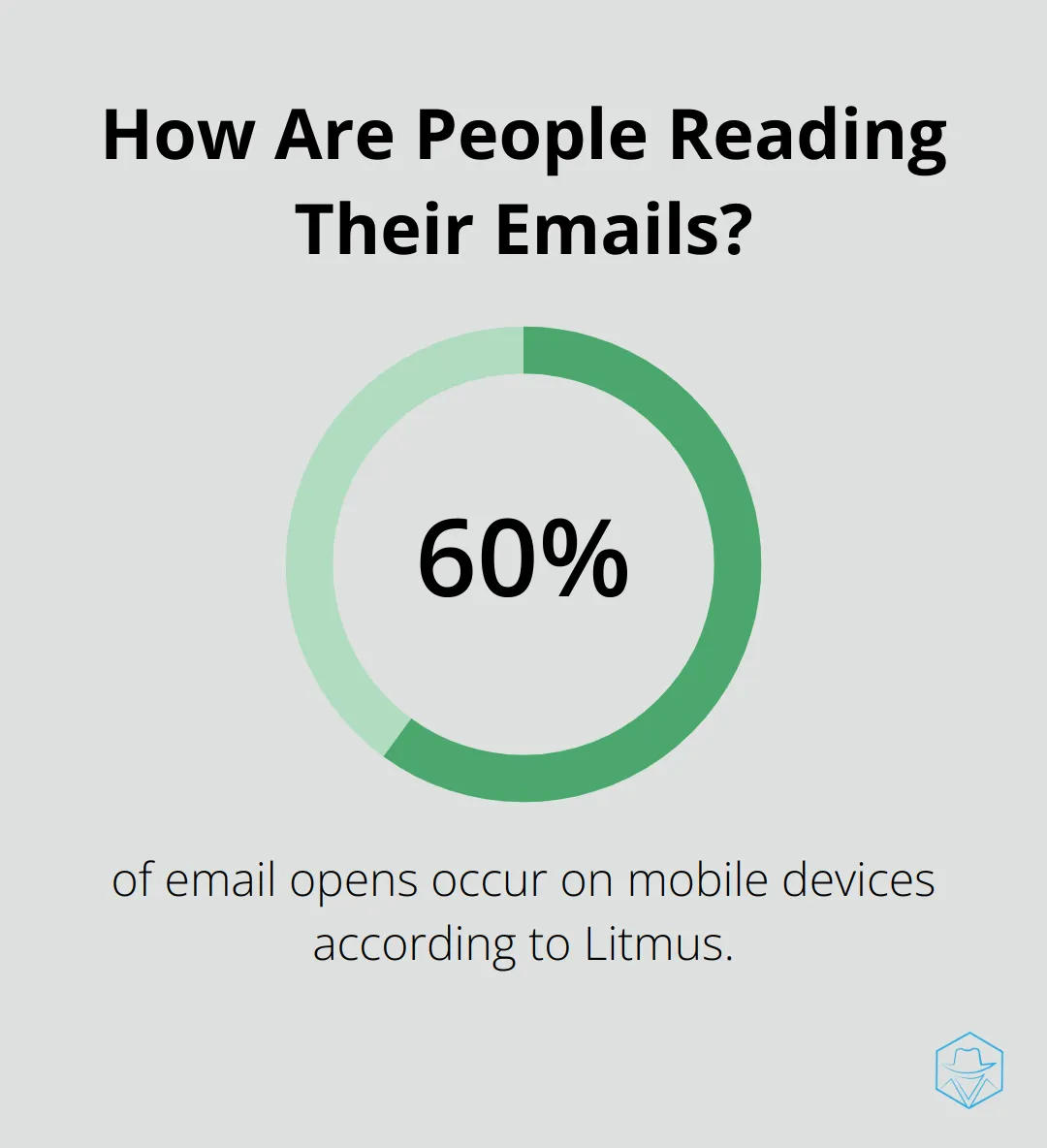
Design your emails with a “thumb-friendly” approach. Place important elements in the center of the screen for easy tapping. Use a font size of at least 14px for body text and 22px for headlines to ensure readability on small screens.
Master Abandoned Cart Recovery
Abandoned cart emails generate an average of $5.81 for every recipient (as reported by Klaviyo). Send your first recovery email within an hour of cart abandonment to capitalize on the customer’s initial interest.
Include clear images of the abandoned products, along with compelling copy that addresses common objections. Offer a small discount or free shipping to incentivize purchase completion (but avoid training customers to abandon carts for discounts).
A three-email sequence often works best: send the first email after one hour, the second after 24 hours, and the final email after 3-5 days. Each email should have a unique angle-urgency, scarcity, or social proof-to re-engage the customer.
Leverage Data for Hyper-Personalized Recommendations
Personalized product recommendations can increase email click-through rates by 300% (according to Experian). Use your Shopify data to create segments based on past purchases, browsing history, and customer lifetime value.
Create a segment of customers who’ve purchased a specific product and recommend complementary items. For example, if you sell skincare products, someone who bought a cleanser might be interested in a matching toner or moisturizer.
Extend personalization beyond product recommendations. Tailor your email content based on the customer’s location, purchase frequency, or even the weather in their area. This level of personalization demonstrates your understanding of customer needs, fostering loyalty and increasing conversions.
Implement A/B Testing for Continuous Improvement
A/B testing allows you to refine your email marketing strategy based on data-driven insights. Test different elements of your emails, such as subject lines, call-to-action buttons, images, and copy.
Try to test one element at a time to isolate the impact of each change. For example, test two different subject lines while keeping the email content identical. Send each version to a small portion of your list, then use the winning version for the remainder of your subscribers.
Track key metrics like open rates, click-through rates, and conversion rates to determine the effectiveness of your tests. Use these insights to continually improve your email campaigns and drive better results for your Shopify store.
Final Thoughts
The best email marketing Shopify tools offer seamless integration, powerful automation, and advanced analytics. These features enable you to create targeted campaigns that resonate with your audience and drive conversions. Your chosen tool should align with your specific business needs and goals, considering factors like ease of use, scalability, and customer support.
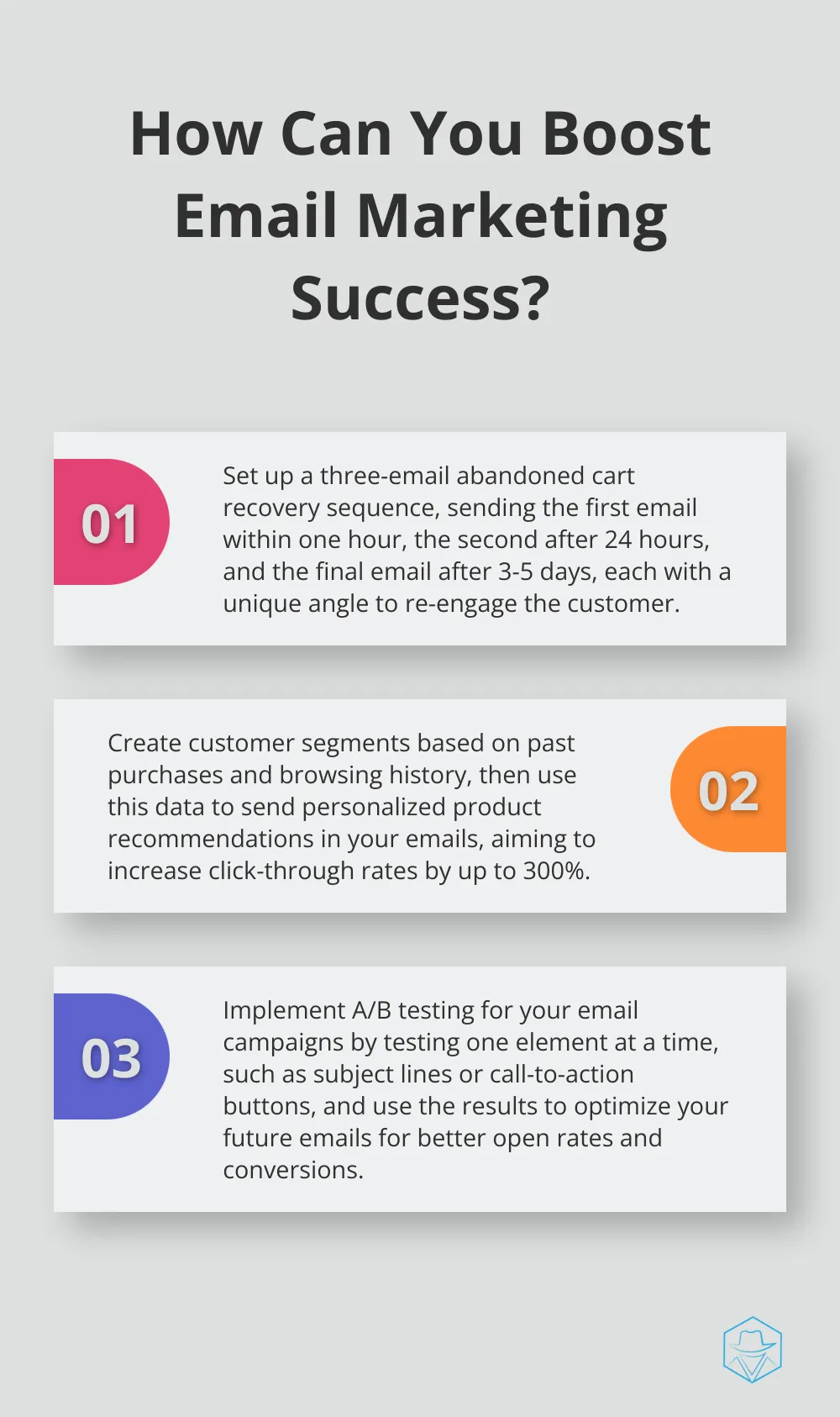
Effective email marketing strategies will boost sales and customer engagement for Shopify store owners. You should craft mobile-responsive emails, master abandoned cart recovery, and use data for personalized recommendations. A/B testing different elements of your emails will help you make data-driven decisions and improve your results over time.
Email marketing is powerful, but it’s just one piece of the puzzle. Drop Cowboy offers innovative ringless voicemail and SMS solutions that can complement your email marketing efforts (reaching customers through multiple touchpoints). Start exploring these email marketing solutions and implement these strategies today to unlock the full potential of your e-commerce business.
blog-dropcowboy-com
Related posts

March 8, 2025
Integrating Ringless Voicemail API into Your System
Boost communication with our ringless voicemail API integration guide. Get practical tips and tools for seamless implementation and improved efficiency.
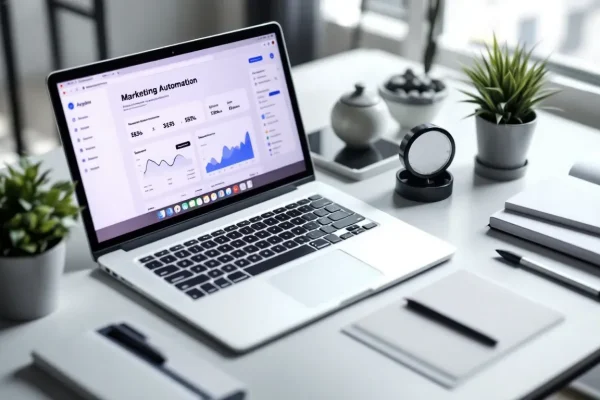
April 3, 2025
Marketing Automation for Agencies: Boost Efficiency
Boost efficiency with marketing automation for agencies. Leverage tools and insights to save time, streamline tasks, and enhance client satisfaction.

March 29, 2025
Top Marketing Automation Companies to Watch
Explore top marketing automation companies revolutionizing marketing strategies with innovative tools and proven results for businesses of all sizes.
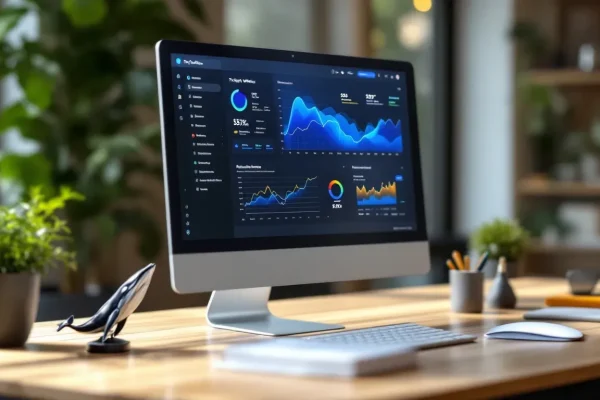
April 14, 2025
What is Triple Whale and How Can It Boost Your Business?
Learn what Triple Whale is and how it boosts business growth with data analytics and insights, driving sales and increasing efficiency.

April 7, 2025
Go High Level vs HubSpot: CRM Showdown
Compare Go High Level vs HubSpot in our CRM showdown, exploring features, pricing, and which platform could elevate your business strategy.
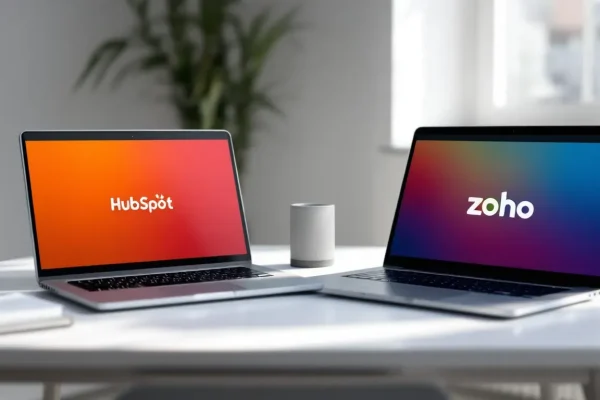
March 26, 2025
HubSpot or Zoho: Choosing the Best CRM Platform
Compare HubSpot vs Zoho to find the best CRM platform for your business needs. Explore features, pricing, and user reviews in our detailed analysis.